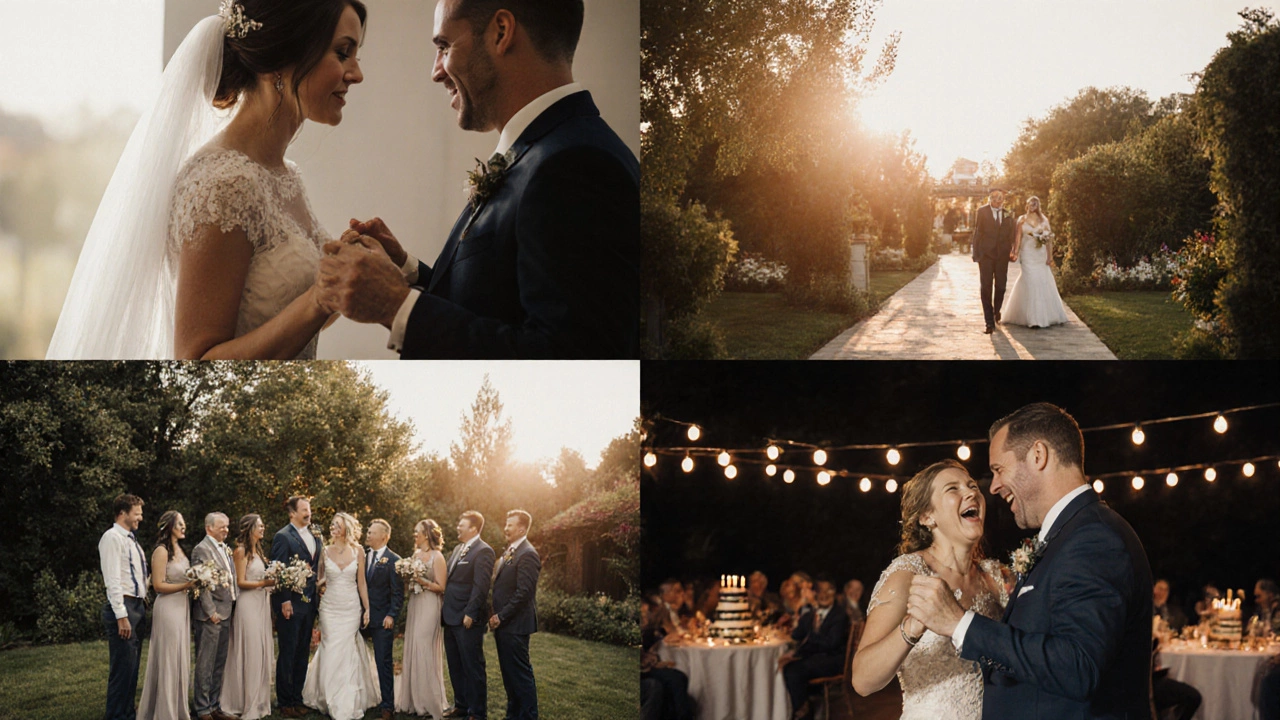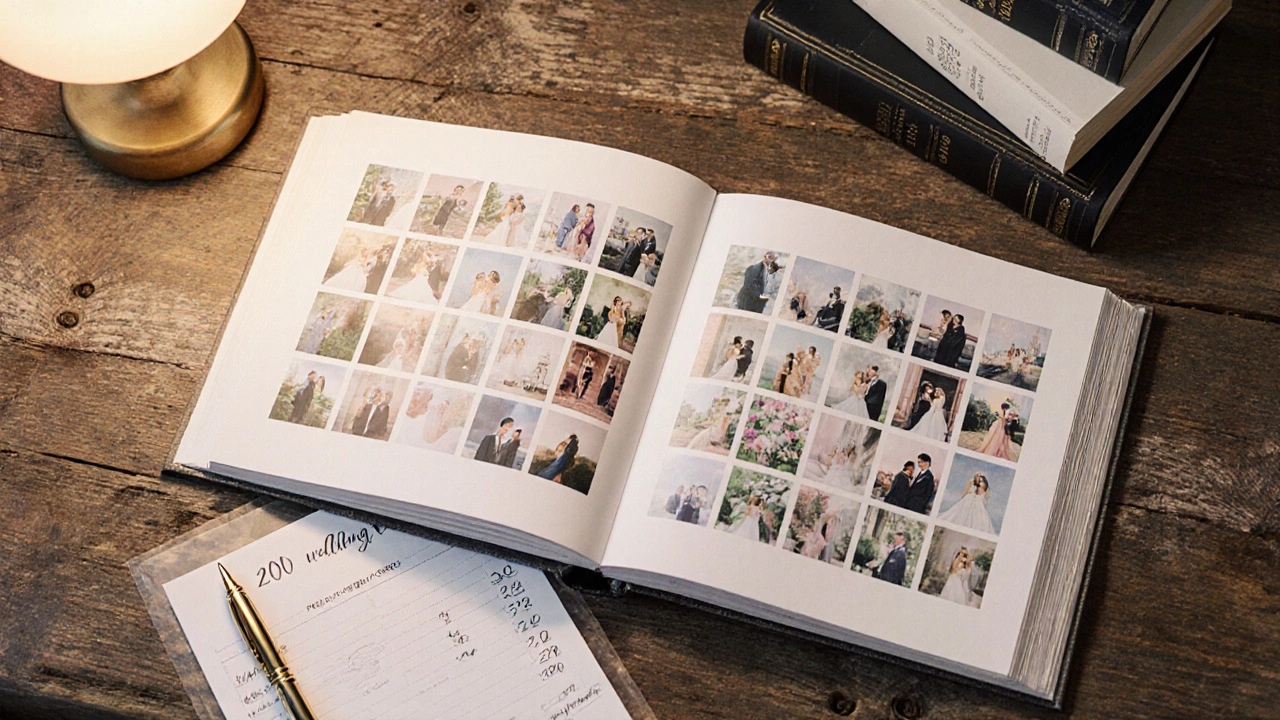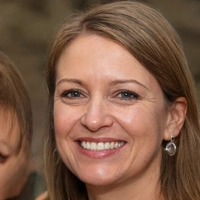Wedding Photo Count Estimator
Wedding Photo Calculator
Results based on industry standards from the article
Enter your wedding details to see if 200 photos matches your needs.
Key Takeaways
- 200 photos can be enough for a small, intimate ceremony, but larger events often need 400‑600 images.
- The right count depends on coverage style, venue size, and how many moments you want to preserve.
- Talk numbers with your wedding photographer early to avoid surprises.
- Consider editing time, storage, and album design when setting expectations.
- A simple checklist can help you decide if 200 photos matches your vision and budget.
Planning a wedding is a maze of decisions, and the number of photos you’ll get often sneaks into the conversation. You might hear, “Our photographer usually shoots 200 pictures-should we go with that?” That question opens a whole set of considerations: how many guests are there, how long the ceremony lasts, and what storytelling style you prefer. Below we break down everything you need to know to answer that question confidently.
Understanding Photo Count Basics
When planning your big day, wedding photo count is a key metric that determines how many images you’ll receive from your photographer. It represents the total number of final, edited photos delivered after the wedding. A higher count typically means more moments captured, but it also involves longer editing time and larger storage needs. The industry doesn’t have a hard rule; the range usually falls between 200 and 800 images depending on several factors.
How Coverage Style Impacts the Count
Different photography approaches produce different volumes. Here’s a quick look at the most common styles and their typical output:
| Coverage Style | Typical Photo Count | Ideal Event Size | Key Focus |
|---|---|---|---|
| Documentary (photojournalistic) | 400‑600 | Medium‑large (150+ guests) | Every candid moment |
| Traditional (posed) | 250‑400 | Small‑medium (up to 100 guests) | Classic portraits & group shots |
| Fine Art | 200‑300 | Intimate ceremonies (under 50 guests) | Creative, stylized images |
| Hybrid (mix of documentary & posed) | 300‑500 | Any size | Balanced storytelling |

What 200 Photos Looks Like on the Day
To visualize whether 200 shots meet your needs, imagine a typical timeline for a 5‑hour celebration:
- Getting Ready (45min) - 30‑40 photos: close‑ups of dress, shoes, rings, and candid moments.
- Ceremony (30min) - 30‑35 photos: wide shots of the venue, the walk down the aisle, and key exchange details.
- Family & Group Portraits (45min) - 40‑50 photos: each family unit, bridal party, and any special friend groups.
- Reception Highlights (2hrs) - 80‑95 photos: first dance, cake cut, speeches, and candid festivities.
If you trim the group portrait block or skip a formal cocktail hour, you can comfortably land around 200 images. Any extra moments-like a second ceremony, travel shots between venues, or a late‑night rave-will push the count higher.
Factors That Can Raise or Lower the Count
Beyond style, several practical elements affect the final number:
- Camera capabilities: high‑resolution sensors capture more frames without compromising quality.
- Lighting conditions: bright daylight often yields sharp images quickly; dim venues may require multiple exposures.
- Editing approach: a photographer who delivers a curated gallery will weed out duplicates, while a “everything‑in‑the‑raw” style inflates the count.
- Backup and delivery preferences: some couples request both edited and raw files, effectively doubling the number of images.
- Client expectations: if you want every guest on camera, expect a higher count; if you’re happy with just the main moments, 200 may suffice.
Setting Expectations with Your Photographer
Clear communication prevents misunderstandings later. Use this checklist when you meet your wedding photographer:
- Ask for a sample gallery from a similar‑sized wedding.
- Confirm the estimated wedding photo count and whether it includes edited or raw files.
- Discuss which moments are non‑negotiable (first look, vows, first dance).
- Clarify the turnaround time for the final gallery.
- Review the contract for extra‑hour fees, which often increase the photo total.

Budget Implications
Photo count can subtly affect cost. Many photographers price per hour, but some also have tiered packages based on images delivered:
| Package | Photo Count | Price (NZD) |
|---|---|---|
| Basic | ~200 | $1,200 |
| Standard | ~400 | $1,800 |
| Premium | ~600+ | $2,500 |
Beyond the photographer’s fee, consider album printing costs. A typical 20‑page hardcover album for 200 photos runs about $300, while a 40‑page album for 400‑500 images can cost $500‑$600. Factor these numbers into your overall wedding budget.
Decision Guide: Is 200 Right for You?
Answer these quick questions to see if 200 fits your day:
- Is the guest list under 100?
- Do you prefer a Fine Art or traditional posed style?
- Will you have a single ceremony and reception at the same venue?
- Are you comfortable with a curated gallery rather than a “everything” approach?
If you answered “yes” to most, 200 is likely sufficient. If any answer was “no,” discuss scaling up with your photographer to avoid missing key moments.
Frequently Asked Questions
What is a typical photo count for a 150‑guest wedding?
For a 150‑guest celebration, most photographers deliver between 400 and 600 edited images, depending on coverage style and contract details.
Can I get less than 200 photos if I only want a highlight reel?
Yes. Some photographers offer a “highlights” package that provides 100‑150 carefully selected images plus a short video montage. Be clear about this upfront.
Do raw files count toward the photo total?
Raw files are usually considered separate from the edited gallery. If you request both, expect the total file count to double.
How long does it take to edit 200 photos?
A skilled photographer typically spends 1‑2 minutes per image for basic color correction and cropping, so 200 photos can take 3‑6 hours of post‑production work.
Should I provide a shot list to hit exactly 200 photos?
A loose list of must‑have moments is helpful, but micromanaging each frame can hinder the photographer’s creative flow. Trust their expertise to capture additional spontaneous moments.

